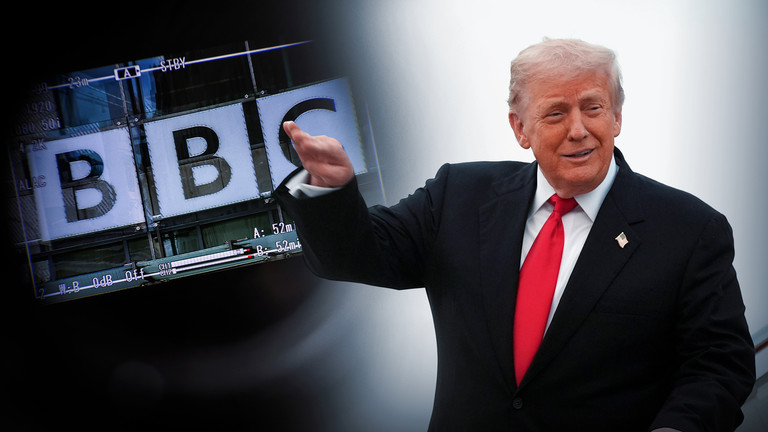
Newswriters News Desk
The BBC is facing its worst credibility crisis in years after allegations that it doctored a speech by Donald Trump in a documentary about the January 6, 2021, Capitol riots — a scandal that has already claimed the resignations of Director General Tim Davie and News Chief Deborah Turness.
The controversy erupted after The Telegraph reported that a BBC Panorama episode had stitched together portions of Trump’s Ellipse speech delivered 54 minutes apart, implying that protesters were marching toward the Capitol immediately after Trump’s incendiary remarks. In reality, footage shown in the program was filmed before the rally began. A leaked BBC memo reportedly conceded that the edit “misled viewers by omitting key context.”
Amid mounting backlash, both Davie and Turness stepped down on Sunday. Davie’s resignation note vaguely acknowledged that “mistakes have been made,” while Turness admitted the controversy had “caused damage to the BBC” but insisted the broadcaster “pursues the truth with no agenda.”
The resignations came just days after a blistering White House attack on the BBC. Press Secretary Karoline Leavitt branded the British public broadcaster a “leftist propaganda machine” and “100% fake news” funded by “unwitting taxpayers.” Her comments, published in The Telegraph, accused BBC editors of deliberately manipulating Trump’s remarks — particularly his now-infamous exhortation to “fight like hell” — while omitting his call for supporters to act “peacefully and patriotically.”
Donald Trump himself seized on the scandal to reignite his long-running feud with the media. Speaking at a campaign stop in Florida, Trump said, “The BBC has been caught red-handed — they took my words, twisted them, and lied to the world. They’re worse than CNN. Totally fake news!” He went on to call the broadcaster “a disgrace to journalism” and said the controversy proves “the fake news media will do anything to stop the truth and to stop us.”
Trump’s remarks drew cheers from his supporters and prompted a flood of online reactions. Conservative commentators on X hailed Leavitt for “exposing the BBC’s lies,” while GB News amplified the story in multiple segments citing “mounting evidence of bias.”
BBC defenders, however, pushed back. Analysis editor Ros Atkins released a video calling the White House accusations “repeatedly false,” explaining that the program’s edits were “standard condensation for time” and that the full speech transcript was publicly linked. British media scholars warned that Leavitt and Trump were “weaponizing” isolated editorial lapses to undermine public trust in journalism.
The timing could hardly be worse for the BBC. Just weeks earlier, UK regulator Ofcom censured another BBC documentary for failing to disclose that its narrator was related to a Hamas official — a ruling it said rendered the film “materially misleading.”
With transatlantic tempers flaring, the spat has deepened an already-fraught divide between Washington and London over media credibility and accountability. Whether the scandal permanently damages the BBC’s global reputation or merely fuels Trump’s campaign narrative remains to be seen. But one thing is clear: in the age of post-truth politics, “fake news” has become both an accusation — and an applause line.



